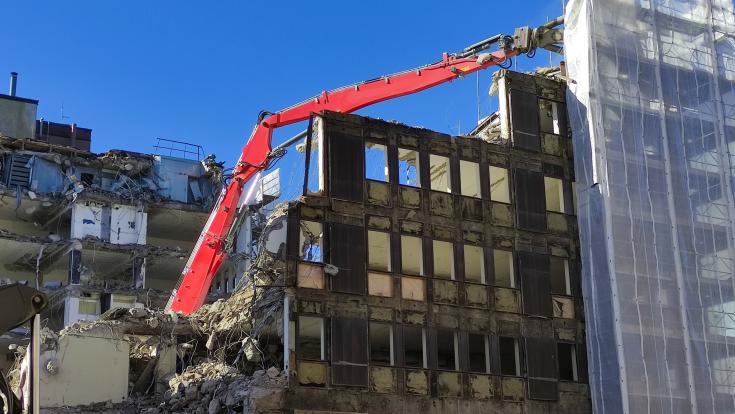Mandatory separation of CDW during demolition in Spain

Since 1 January, article 30.3 of the Spanish Waste Law 7/2022 has entered into force. It is linked to the key objective of selective demolition, which is now effective. This measure mandates selective separation of non-hazardous Construction and Demolition Waste (CDW) during demolition (classified following the specific fractions laid down in the law, cf. below), thus fostering responsible waste management. Separation will be mandatory and requiring a preliminary study to identify the quantities expected to be generated for each fraction and include a forecast of CDW management, considering the waste hierarchy and priority order established by article 8 of the law.
This measure is part of the noticeable updates introduced the approval of Spain's waste Law 7/2022, on 8 April 2022. The law outlines primary objectives concerning Construction and Demolition Waste (CDW): preventing waste generation for reduction, discouraging landfill disposal, and ensuring proper management of hazardous waste. In particular, Article 30 of the law focuses on management measures for construction and demolition waste, which are one of the focus of INERTWASTE.
Another novelty involves the classification objective for waste starting on 1 July 2022. According to the article 30.2, non-hazardous CDW must be classified into at least the following fractions: wood; mineral fractions (including concrete, bricks, tiles, ceramics, and stone), metals, glass, plastic, and gypsum. Moreover, the separation and classification of reusable elements such as tiles and sanitary ware at the same site are encouraged. This classification will preferably be carried out at the waste generation site and without prejudice to the rest of the waste that already has mandatory separate collection established.
These measures are expected to drive the transition towards a circular economy and promote more sustainable waste management practices. The effects of these objectives on companies and on regional indicators are still unknown, but it is an issue that will be discussed among regional stakeholders throughout INERTWASTE.